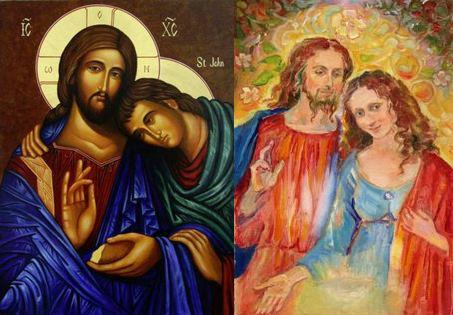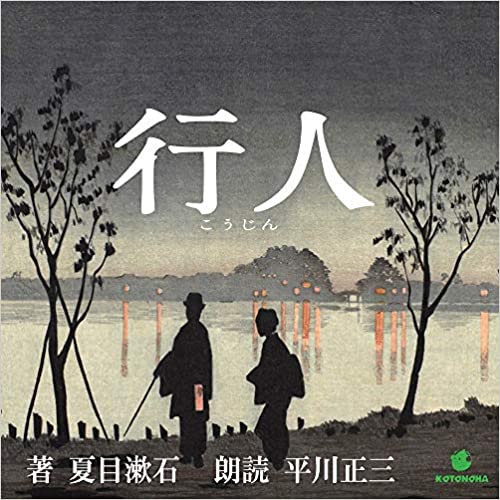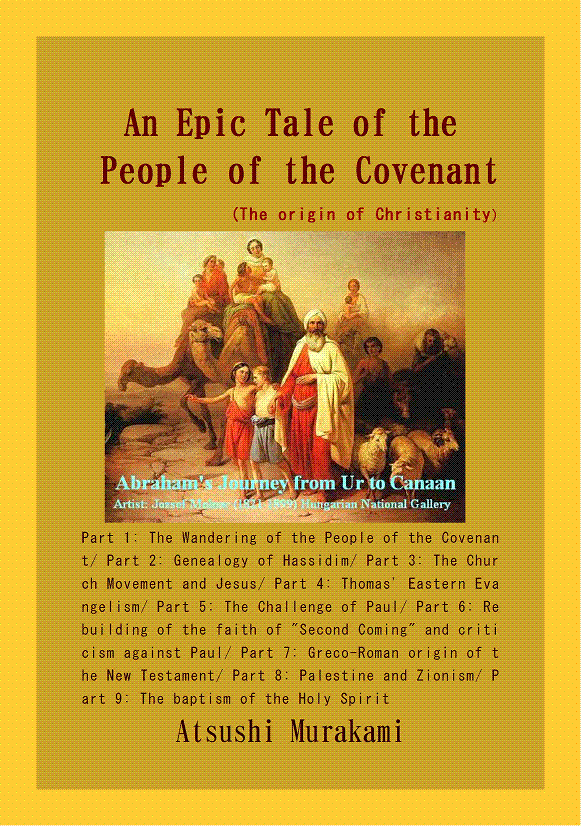Jesus said, "If two make peace with each other in a single house, they will say to the mountain, 'Move from here!' and it will move." (Thomas 48)
Jesus said, "When you make the two into one, you will become children of Adam, and when you say, 'Mountain, move from here!' it will move." (Thomas 106)
Muhammad Legend
One day, Muhammad ordered the public to gather here on the designated date because he would call the mountain over there to under his feet. And when a large number of people gathered around him on that day, Muhammad, as promised, commanded a loud voice to "come here" to the mountain over there. However, the mountain remained still and did not move. So Muhammad again shouted, "Come here." But the mountain still didn't move. Muhammad was finally forced to issue the same command three times, but the mountain did not even fine movement. However, Muhammad was never a whit abashed, but said, If the mountain will not come to me, I will go to the mountain. And he walked toward the mountain briskly.
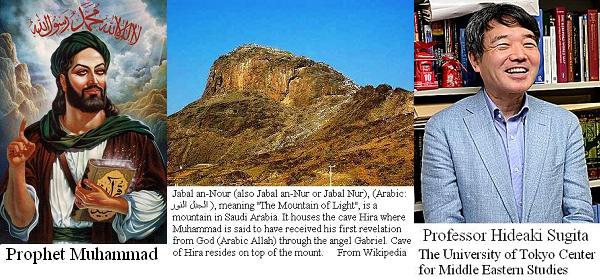
Muhammad seems to have known through the Jingjiao (景教Luminous Religion, Keikyo in Japanese) and the Eastern Christian Church the teachings of Jesus in the Gospel of Thomas Verse 48 and 106 and also the Gospel of Matthew 17:20 (If you have faith as small as a mustard seed, you can say to this mountain, 'Move from here to there' and it will move. Nothing will be impossible for you.). It is self-evident that the mountain does not move, and it was demonstrated by Muhammad in front of the public that "If the mountain will not come to Muhammad, Muhammad will go to the mountain" is the essence of Jesus' teaching.
According to Professor Hideaki Sugita (杉田英明1956-) of The University of Tokyo Center for Middle Eastern Studies (東京大学中東地域研究センター), this story is introduced in Francis Bacon's (1561-1626) "The Essays or Counsels Civil and Moral (Third Edition, Chapter 12, 'Of Boldness')" and is also taken up by Soseki Natsume (夏目漱石1867-1916) in his book "Kohjin (行人)." Mr. Byron Porter Smith (1889-1955), Professor of English and Chairman of the Department of English at the American University of Beirut, says that the source is unknown in his book, 'Islam in English Literature.'
Inspection after Enlightenment
Unlike the first half of "Kohjin (行人)." where is depicted 'I' novel-like (私小説: a type of Japanese novel depicting the author's private life) development centered on the conflict in a family with the delicate relationship between the main character Jiro (二郎) and his elder brother Ichiro (一郎)'s wife and with the anguish of Ichiro who doubts his wife's chastity, the second half of "Kohjin" is centered on religious questions and answers between Ichiro and his friend 'H.' Apparently, Soseki's own experience of inner conflict during meditation at Zen temple is reflected.
At the Rinzai Zen temple (臨済系禅門) in Japan, Roshi (老師: honorific title for teachers of Zen Buddhism) gives students who have passed a koan (公案: subject which Zen-masters give each religious to learn and practice the doctrine of Buddhism) such as
'one's original face (intrinsic nature) before his parents were born (父母未生以前自己本来の面目)' and
'Zhaozhou's wu (趙州の無字),' a question to test the students to use their enlightenment in practice, such as "To bring Mt. Fuji with a wick." Such test is called Gogono-shirabe (悟後の調べ: Inspection after Enlightenment). As it means that, once you attain the absolute state of
'Heaven, earth, and I have the same root and myriad things and I are one body' proclaimed in Sengzhao(僧肇)'s gatha, in light of the teaching of
'Si Liao Jian (四料簡: Four Processes for the Liberation of Subjectivity and Objectivity)' by Lin-ji Yi-xuan (臨済義玄?-867), there should be nothing of difficulty in carrying Mt. Fuji on your palm. Soseki may have come up with the above-mentioned episode of Muhammad when he was given this application problem when he visited Engakuji Temple (円覚寺).
By the way, under the temple laws (寺院諸法度) set by the Tokugawa Shogunate (徳川幕府), a priest of the Rinzai sect had to pass dozens of koans over decades in order to be qualified as an Roshi, and each time he passed each koan, this kind of 'Gogono-shirabe' was imposed.
In another novel, Kofu (抗夫: Miner), Soseki, through the mouth of a young man, the main character of the novel, who is taken by Chozo (長蔵), a mining recruitment agent, and heads for the coal mine, recalls perhaps his (Soseki's) own experience of inner conflict during meditation at the Zen temple as follows;
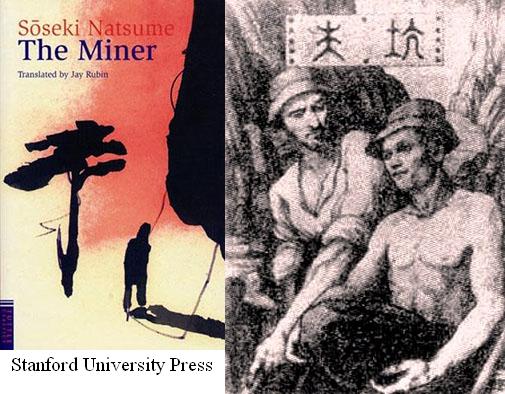
Soon the road will gradually become an uphill. The river will eventually get far. I get out of breath. The unevenness of the mountain-path becomes more and more intense. My ears were screaming. If this is not an elopement, but an excursion, I should have managed to complain for a long time, but it's the first place of self-destruction due to my failed suicide. So, even if it is painful, I can't go to anyone to complain. Speaking of who the other person is, no one is other than myself. Even if there is someone, I don't have the courage to stick to it. Besides, he is so calm that I am beneath his notice. He walks steadily and doesn't even speak. There is no room to talk to him. I have no choice but follow him with Shinbyo (神妙 earnestly) and silently with screaming my ears. I've remembered the word 'shinbyo' since I was a kid, but this is the first time I realize the meaning of 'shinbyo.' It's funny to say that this is the beginning of enlightenment, but once enlightened, that enlightenment continued for a long and finally reached the climax in the mine. When you reach the extreme point of Shinbyo, even the tears that should come out would not come out. It is said that tears are spilling, but it is still safe when tears spill out. Definitely, you can also laugh while tears come out.
Put down (放下着)
By the way, Ichiro's wife, Nao (直), couldn't get along with her husband, who is devoted to learning, but she could talk harmoniously with his brother Jiro. Ichiro is worried that "I am married to a woman who has no spirit or soul," and becomes suspicious of his wife's chastity. For this reason, Jiro ends up leaving the house and boarding. At the request of Jiro, "H" advised Ichiro, "If you don't like your wife's aloof attitude, why don't you approach her yourself like Mohammed. Don't just devote yourself to learning. If you throw it out cleanly, it will be easier." But Ichiro replies, "Then, what am I going to make a core of my life?"
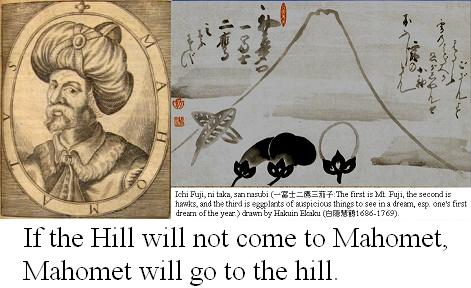
It goes without saying that if it is so difficult for two people to keep peace with each other in the same house, it will be extremely difficult to maintain peace in a multi-ethnic and multi-religious country, or in the world. Just like Ichiro, who confides, "What I want is a spirit that is not the flesh of a woman" and wonders if he should throw away his career of studying which is core of his life in order to get closer to his wife, Muhammad faced a huge enemy with which he had to achieve peace even if he had to throw away his Islamic identity. And it was intended that Muhammad expressed to the public his determination to return to
the original integration (propator = original Self) before the separation of Adam and Eve and before the birth of Judaism, Christianity and Islam.
The quintessence of 'Three-One mysterious substance'
According to Mr. Sasagu Arai, author of the Japanese version of 《The Gospel of Thomas》, the conditional phrase in the first half of verse 48 of the Gospel of Thomas reminds us of the Gospel of Matthew chapter 18 verse 19; "if two of you on earth agree about anything you ask for, it will be done for you by my Father in heaven." and its consequent phrase reminds us of the latter half of the Gospel of Matthew chapter 17 verse 20; "if you have faith as small as a mustard seed, you can say to this mountain, 'Move from here to there' and it will move. Nothing will be impossible for you."
'Mountain, move from here!' at the verse 106 of the Gospel of Thomas is also parallel to the chapter 17 verse 20 of the Gospel of Matthew. However, the phrase of 'When you make the two into one' strengthens 'Gnosticization' rather than verse 48. This is because as well as 'to make male and female into a single one' in verse 22 of the Gospel of Thomasit, it is seen as a condition for 'entering the kingdom.' And 'you will become children of Adam,' means becoming descendants of androgynous Adam, that is, before Eve was separated from Adam, as explained in Gospel of Thomas, verses 46 and 85.
However, even if the realization of the original integration through 'to make the two into one' or 'to make male and female into a single one' is a condition for 'entering the kingdom,' verse 48 implies that it is extremely difficult to maintain peace in this world, that is, the relative world where Eve has been separated from Adam.
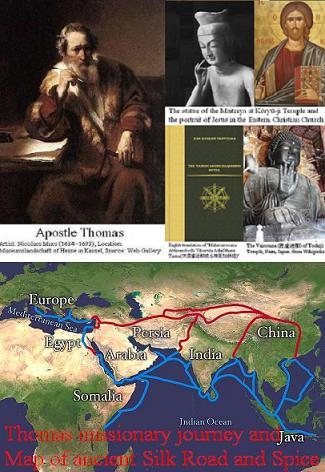
Even in ancient Jewish society, the marital quarrel seems to have occurred frequently. When some Pharisees asked, "Is it lawful for a man to divorce his wife for any and every reason?" Jesus replied, "Haven't you read that at the beginning the Creator 'made them male and female. For this reason a man will leave his father and mother and be united to his wife, and the two will become one flesh.' So they are no longer two, but one. Therefore what God has joined together, let man not separate." (Mt 19:3-6) But Jesus also said "I have come to impose conflicts upon the earth: fire, sword, war." (Thomas 16, Mt 10:34-36, Lu 12:51-53) Apparently, the doctrine of
"Three-One mysterious substance (三一妙身)" raised on the
"Daqin Jingjiao Popular Chinese Monument (大秦景教流行中国碑: Nestorian Stele)" seems to have sublated this antinomy by Thomas during his preaching tour of India and China after Jesus' death.<To be continued>
[Reference]
The Gospel of Thomas verse 22
Jesus saw some babies nursing. He said to his followers, "These nursing babies are like those who enter the kingdom." They said to him, "Then shall we enter the kingdom as babies?" Jesus said to them, "When you make the two into one, and when you make the inner like the outer and the outer like the inner, and the upper like the lower, and when you make male and female into a single one, so that the male will not be male nor the female be female, when you make eyes in place of an eye, a hand in place of a hand, a foot in place of a foot, an image in place of an image, then you will enter the kingdom."
The Gospel of Thomas verse 46
Jesus said, "From Adam to John the Baptist, among those born of women, no one is so much greater than John the Baptist that his eyes should not be averted.
But I have said that whoever among you becomes a child will recognize the (Father's) kingdom and will become greater than John."
The Gospel of Thomas verse 85
Jesus said, "Adam came from great power and great wealth, but he was not worthy of you. For had he been worthy, [he would] not [have tasted] death."
What is "Baptism with The Holy Spirit"?
According to the dialectic of the Gospel of John,
【Thesis】"A man can possess eternal life through accepting testimony of the Son of man and being baptized by him." (John 5:24)
【Anti-thesis】But "The one who comes from the earth cannot accept the testimony by one from heaven." (John 3:32)
How then can a man possess eternal life?
【Synthesis】"If you want to be baptized with the Holy Spirit, you can just go back to the word which was with God in the beginning (John 1:1) and certify that God is truthful. (John 3:33)"
When he said, "You are Huichao," Zen Master Fayan thrusted vivid Self in Huichao in front of his eyes.
Purchase here
○One world:
Your Comments / Unsubscribe
SEAnews Messenger
SEAnewsFacebook
SEAnews eBookstore
SEAnews world circulation
